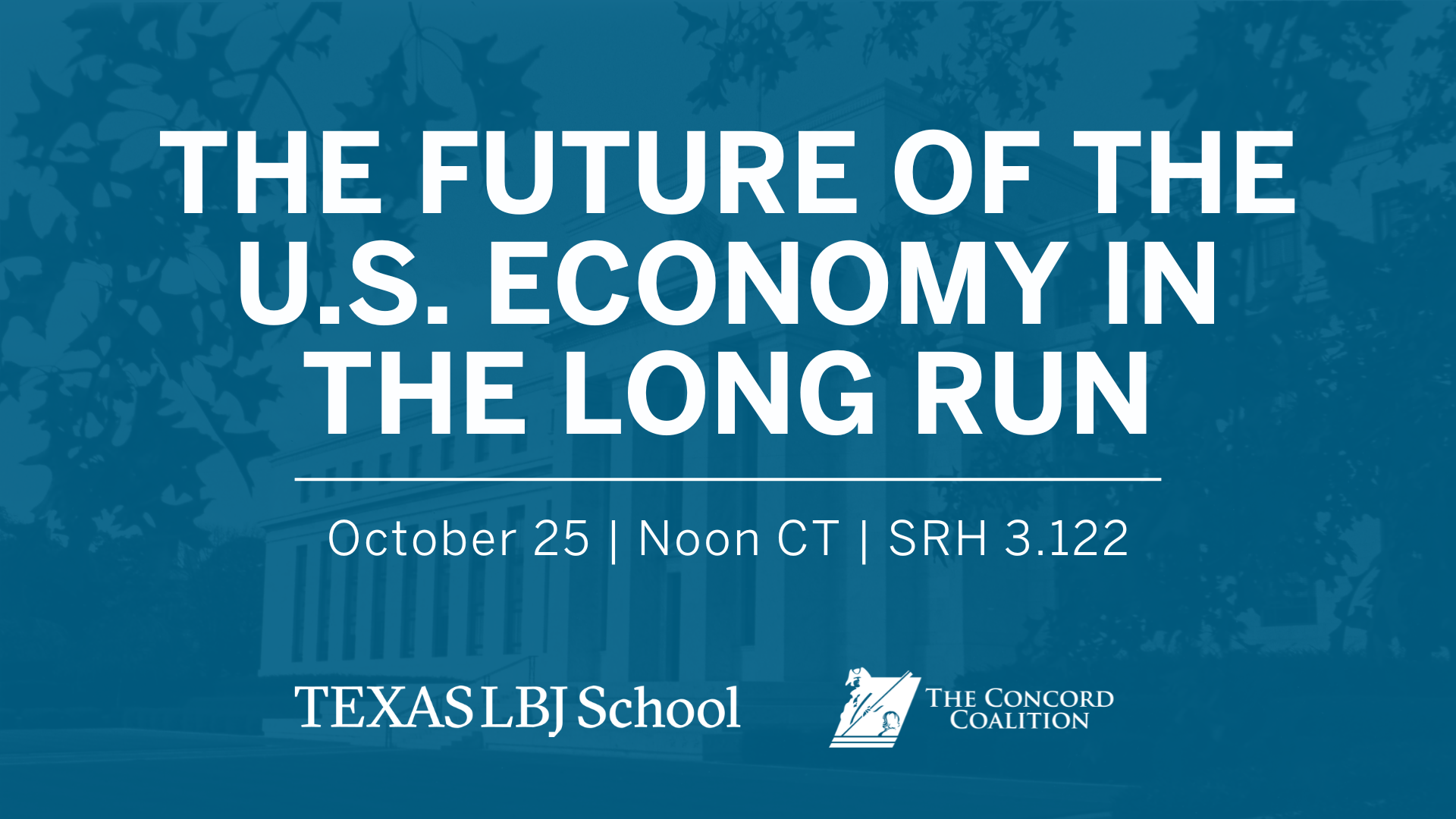
The nonpartisan Congressional Budget Office (CBO) estimated that real GDP growth would average less than two percent annually over the long-term, a decline in growth driven by an aging population and lagging productivity. Policymakers must shift their attention to some pre-existing structural imbalances that threaten chronically slow long-term economic growth. Will Marshall, President of the Progressive Policy Institute, Robert Bixby, Executive Director of The Concord Coalition and James K. Galbraith, the Lloyd M. Bentsen Jr. Chair in Government/Business Relations at the LBJ School come together to look at the big challenges ahead and offer solutions. Professor Don Kettl will moderate.
Speakers
Will Marshall is president and founder of the Progressive Policy Institute (PPI), a catalyst for political change and policy innovation with offices in Washington, D.C. and Brussels. Its mission is to craft new ideas for advancing the enduring values of liberal democracy.
Founded in 1989, PPI started as the intellectual birthplace of the New Democrat and “Third Way” movements, earning a reputation as President Bill Clinton’s “idea mill.” Many of its groundbreaking policy innovations have been translated into U.S. policy and law, and have influenced center-left political leaders around the world.
Today, PPIs work centers on fortifying the vital liberal center against the global rise of illiberal populism and nationalism. Its vision for clean and equitable growth aims at spreading digital innovation to people and places left behind; lifting wages to reduce class and racial disparities; grooming the world’s most talented and entrepreneurial workers; modernizing outdated immigration laws; and, defending free societies in a dangerous world.
Robert L. Bixby is executive director of The Concord Coalition, a nonpartisan organization that encourages fiscal responsibility in Washington and helps educate the public about the federal budget and the need to protect our children and future generations from excessive government debt.
Bixby joined Concord in 1992 and served in several positions, including policy director and national field director, before being named executive director in 1999. He has served as a member of the Bipartisan Policy Center’s Debt Reduction Task Force (the Domenici-Rivlin commission), which produced a model plan for comprehensive fiscal reform.
He frequently speaks around the country on the nation’s fiscal challenges and possible bipartisan solutions, including greater government efficiency, tax reform and improvements in the entitlement program. He has testified at congressional hearings and been interviewed by news organizations around the country. Bixby has appeared on ABC, NBC, CBS, PBS, CNN and Fox News.
James K. Galbraith holds the Lloyd M. Bentsen Jr. Chair in Government/Business Relations at the Lyndon B. Johnson School of Public Affairs and a professorship in Government at The University of Texas at Austin. He was executive director of the Joint Economic Committee of the United States Congress in the early 1980s, and before that, an economist for the House Banking Committee. He chaired the board of Economists for Peace and Security from 1996 to 2016 and directs The University of Texas Inequality Project. He is a managing editor of Structural Change and Economic Dynamics.
From 1993 to 1997 Galbraith served as chief technical adviser for Macroeconomic Reform to the State Planning Commission of the People's Republic of China. In 2010, he was elected to the Accademia Nazionale dei Lincei. In 2014 he was co-winner of the Leontief Prize for Advancing the Frontiers of Economics. In 2020 he received the Veblen-Commons Award of the Association for Evolutionary Economics. He holds degrees from Harvard University (AB, magna cum laude), in economics from Yale University (M.A., M.Phil, Ph.D.), and academic honors from universities in Ecuador, France and the Russian Federation. He is a Marshall Scholar; a life member of the Council on Foreign Relations and the Texas Philosophical Society; and a member of the Free Economic Society, an organization of economists in Russia, chartered by Catherine the Great in 1765.
Donald Kettl specializes in public management and public policy. He previously served as dean in the School of Public Policy at the University of Maryland, and is a nonresident senior fellow at the Volcker Alliance, the Brookings Institution and the Partnership for Public Service. He has authored or edited numerous books, including The Divided States of America: Why Federalism Doesn't Work (2020); Can Governments Earn Our Trust? (2017); Little Bites of Big Data for Public Policy (2017); The Politics of the Administrative Process (7th edition, 2017); Escaping Jurassic Government: Restoring America's Lost Commitment to Competence (2016); System Under Stress: The Challenge to 21st Century American Democracy Homeland Security and American Politics (2014); The Next Government of the United States: Why Our Institutions Fail Us and How to Fix Them (2008); and The Global Public Management Revolution (2005).
He has received three lifetime achievement awards: the American Political Science Association's John Gaus Award, the Warner W. Stockberger Achievement Award of the International Public Management Association for Human Resources, and the Donald C. Stone Award of the American Society for Public Administration.





